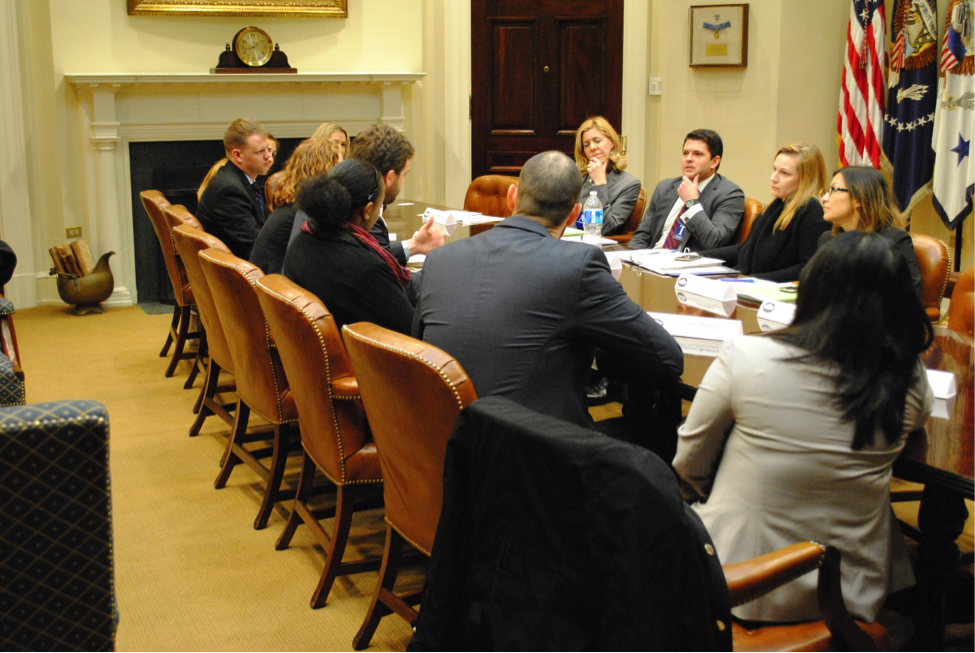
"Every sector, every industry, every community can benefit from the incredible talents of our veterans. They’re ready to serve, and they’ll make you proud." -- President Obama
As the new Associate Director for Veterans and Military Affairs in the White House Office of Public Engagement, I am excited to serve my fellow veterans who have done so much for this country. Yesterday, I had my first opportunity to engage with leaders from emerging veterans organizations who are working on the ground to help former servicemen and women stay connected to each other, transition to civilian life, and impart a sense of purpose upon returning to their communities.

Represented at the meeting, which was led by White House Deputy Chief of Staff Kristie Canegallo, were leaders from Team Red, White & Blue, The Mission Continues, Team Rubicon, Student Veterans of America, Iraq and Afghanistan Veterans of America, Got Your 6, the Travis Manion Foundation, and Points of Light.
At the meeting, White House officials reaffirmed the Administration’s goals to modernize the VA through the MyVA initiative, end veteran homelessness, increase access to health care, and reduce the disability claims backlog. The group also discussed the need to fix the broken appeals process for disability claims that is failing our veterans – leaving some waiting for years or even decades to get a final decision on their appeal. The President called for wholesale reform to this process this past summer, making sure that it works for veterans. We all agree that change is needed. Under the current system, veterans wait too long for final resolution of a VA appeal. Given the rapid growth in appeals workload, we need to change the way the system works. We should be providing a final answer to the vast majority of veteran’s appeals within one year of filing an appeal, rather than perpetuating frustration with a process that takes too long and has no defined end point. And we look forward to working with Congress to make this reform a reality.
The President has consistently stood up for veterans and spoken of our country’s need to integrate veterans into civilian life. On Veterans’ Day last year, the President said, “Every sector, every industry, every community can benefit from the incredible talents of our veterans. They’re ready to serve, and they’ll make you proud.” As the White House’s new liaison to veterans, I am excited to engage veterans of all ages, and from all different walks of life, in order to do right by them and to improve our communities.
Matt Stiner serves as Associate Director of Public Engagement, where he manages outreach to veterans, service members, and their families. He comes to the White House from the Department of Veterans Affairs, where he served as a Special Assistant to the Secretary and was responsible for outreach to veteran and military organizations. His career in public service began in Tulsa, Oklahoma, where he worked as Director of Veterans Affairs in the Mayor’s Office and created numerous programs for veterans, service members, and their families. He then coordinated the Tulsa Veterans Treatment Court, the third such program in the nation to treat veterans involved in the criminal justice system who suffer from mental health and substance abuse issues. Later, Matt served as the first Director of Justice for Vets, a non-profit based in Alexandria, Virginia. Matt has served in the United States Marine Corps and received the Combat Action Ribbon for service in Iraq. After his service, he utilized VA education benefits, graduating Magna Cum Laude from Oklahoma State University. In 2007, he received a prestigious Harry S. Truman Scholarship, which he used towards a Master of Public Administration degree from the University of Oklahoma.

